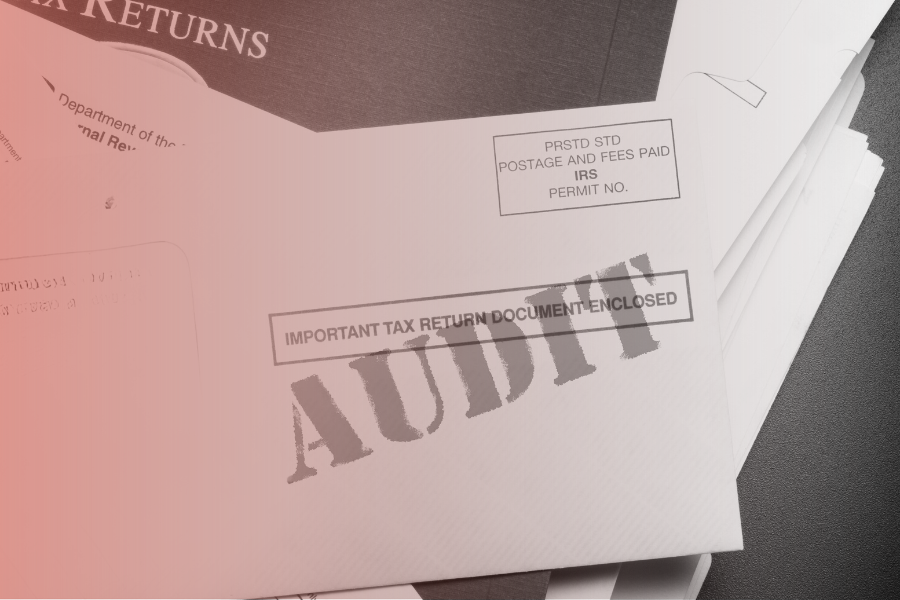The comprehensive foreign gift tax reporting requirements overview
Just How Coverage Foreign Inheritance to IRS Works: Key Insights and Standards for Tax Obligation Coverage
Navigating the complexities of reporting international inheritance to the IRS can be challenging. There specify thresholds and forms that individuals have to understand to assure conformity. Inheritances surpassing $100,000 from non-resident aliens require certain attention. Failing to comply with these standards may result in fines. Recognizing the nuances of tax effects and needed documentation is vital. The adhering to areas will detail essential understandings and guidelines for effective tax coverage.
Understanding Foreign Inheritance and Its Tax Obligation Effects
When individuals get an inheritance from abroad, it is crucial for them to recognize the involved tax effects. In the USA, acquired possessions are normally not subject to revenue tax, but the estate from which the inheritance comes may have certain tax commitments. Foreign inheritances can complicate issues, as various nations have varying laws concerning estate tax obligations. Individuals must know that while they might not owe taxes on the inheritance itself, they might be accountable for reporting the value of the foreign asset to the Internal Earnings Solution (INTERNAL REVENUE SERVICE) Additionally, money exchange prices and valuation approaches can influence the reported well worth of the inheritance. Recognizing these elements is vital to prevent unexpected tax liabilities. Seeking guidance from a tax obligation expert seasoned in international inheritance regulations can give clarity and assurance compliance with both united state and international tax obligation requirements.

Coverage Requirements for Inherited Foreign Possessions
The reporting needs for acquired foreign possessions include details limits and limitations that taxpayers must understand. Conformity with IRS policies requires the ideal tax return and understanding of possible fines for failing to report. Understanding these aspects is necessary for people receiving foreign inheritances to prevent lawful issues.
Coverage Thresholds and Limits
While passing through the complexities of acquired foreign possessions, comprehending the reporting limitations and thresholds set by the IRS is important for compliance. The IRS requireds that united state taxpayers report international inheritances going beyond $100,000 from international estates or non-resident aliens. This limitation relates to the complete worth of the inheritance, incorporating all properties got, such as cash, genuine estate, and investments. Additionally, any international monetary accounts completing over $10,000 have to be reported on the Foreign Bank Account Record (FBAR) Failing to abide by these limits can result in substantial penalties. It is important for taxpayers to properly analyze the value of acquired foreign properties to assure timely and compliant reporting to the IRS
Tax Forms Introduction

Penalties for Non-Compliance
Failing to follow coverage demands for acquired foreign properties can lead to considerable penalties for U.S. taxpayers. The IRS imposes stringent laws relating to the disclosure of international inheritances, and failings can result in penalties that are typically substantial. Taxpayers may face a charge of up to $10,000 for stopping working to file Form 3520, which reports foreign gifts and inheritances surpassing $100,000. In addition, proceeded non-compliance can escalate penalties, possibly getting to up to 35% of the value of the inherited property. Additionally, failing to report can additionally activate much more extreme repercussions, including criminal fees for willful disregard. Taxpayers have to continue to be cautious to prevent these consequences by making certain prompt and precise reporting of foreign inheritances.
Trick Types and Paperwork Needed
When a specific gets an international inheritance, it is vital to understand the key types and paperwork needed for conformity with IRS policies. The key form needed is the IRS Kind 3520, which should be submitted to report the invoice of the international inheritance. This form supplies detailed info concerning the inheritance, consisting of the identity of the international decedent and the worth of the inherited assets.
Additionally, if the inherited residential property consists of international checking account or other financial assets, the individual might require to file the Foreign Savings account Report (FBAR), FinCEN Type 114, if the overall worth goes beyond $10,000. Appropriate documents, such as the will or estate papers from the international jurisdiction, should additionally be accumulated to substantiate the inheritance claim. Maintaining thorough records of all purchases and interactions connected to the inheritance is crucial for accurate reporting and compliance with IRS demands.
Tax obligation Treaties and Their Influence On Estate Tax

Comprehending the ramifications of tax treaties is important for individuals getting international inheritances, as these contracts can substantially impact the tax obligation responsibilities associated to acquired properties. Form 3520 foreign gift. Tax obligation treaties in between nations typically provide particular standards on just how inheritances are taxed, which can cause minimized tax responsibilities or exemptions. As an example, a treaty may stipulate that particular sorts of inheritances are exempt to tax obligation in the recipient's country, or it might permit for credit ratings against tax obligations paid abroad
People must familiarize themselves with the specific stipulations of appropriate treaties, as they can vary substantially. This understanding assists guarantee conformity with tax regulations while taking full advantage of potential advantages. In addition, recognizing just how treaties engage with residential legislations is necessary to precisely report international inheritances to the IRS. Consulting with a tax professional skilled in worldwide tax law might be advisable to browse these intricate policies successfully.
Typical Errors to Stay Clear Of When Reporting Inheritance
Lots of people believe they can conveniently browse the intricacies look at here now of reporting foreign inheritances, they usually ignore crucial information that can lead to considerable errors. One typical error is stopping working to report the inheritance in the appropriate tax year, which can cause fines. Furthermore, some people forget to convert foreign assets right into united state bucks at the suitable currency exchange rate, ultimately misrepresenting their worth. One more frequent oversight entails misinterpreting the reporting thresholds; individuals may think they do not need to report if the inheritance is below a certain amount, which is incorrect. Misclassifying the kind of inheritance-- such as dealing with a gift as an inheritance-- can make complex reporting commitments. People frequently fail to maintain complete documentation, which is essential for verifying insurance claims and staying clear of audits. Awareness of these mistakes can substantially improve conformity and decrease the risk of economic effects.
Looking For Expert Aid for Facility Scenarios
Steering the complexities of reporting international inheritances can be intimidating, specifically for those with complicated financial circumstances. People facing issues such as several foreign properties, differing tax obligation effects throughout territories, or elaborate family characteristics may take advantage of specialist help. Tax experts concentrating on global tax obligation law can give invaluable understandings right into the subtleties of IRS guidelines, making sure conformity while reducing prospective liabilities.
Engaging a certified public accountant (CPA) or tax obligation lawyer with experience in international inheritance can help clear up coverage needs, determine applicable exceptions, and plan best tax obligation approaches. They can assist in completing needed kinds, such as Type 3520, and managing any type of added disclosure needs.
Ultimately, looking for expert advice can reduce anxiety and improve understanding, permitting people to focus on the psychological elements of inheritance as opposed to ending up being overwhelmed by tax intricacies. This aggressive approach can bring about extra beneficial end results in the long run.
Regularly Asked Concerns
Do I Required to Record Foreign Inheritance if I'm Not an U.S. Person?
Non-U.S. citizens typically do not require to report foreign inheritances to the IRS unless they have certain connections to united state tax obligation legislations. Nonetheless, it's a good idea to seek advice from a tax specialist to clarify specific circumstances.
Exist Penalties for Falling Short to Report Foreign Inheritance?
Yes, there are fines for stopping working to report foreign inheritance. Individuals may face considerable fines, and the IRS could impose extra consequences for non-compliance, possibly impacting future tax filings and economic standing.
Can I Subtract Expenditures Associated With Taking Care Of Inherited Foreign Possessions?
Expenditures connected to taking care of inherited international properties are generally not deductible for tax obligation objectives. Nonetheless, individuals need to get in touch with a tax professional for support tailored to their specific conditions and possible exemptions that may apply.
Exactly How Does Foreign Currency Affect the Value of My Inheritance Report?
International currency variations can substantially impact the reported worth of an look at here now inheritance. When converting to U.S - foreign gift tax reporting requirements. bucks, the currency exchange rate at the time of inheritance and reporting figures out the final reported value for tax objectives
What Takes place if My Foreign Inheritance Is Kept In a Trust fund?
It might make complex reporting demands if a foreign inheritance is held in a trust. The count on's structure and tax implications should be assessed, as beneficiaries could face varying tax obligation commitments based upon jurisdiction and count on type.
The Internal revenue service requireds that U.S. taxpayers report foreign inheritances exceeding $100,000 from international estates or non-resident aliens. In addition, any kind of foreign financial accounts totaling over $10,000 need to be reported on the Foreign Bank Account Report (FBAR) People acquiring foreign assets should usually report these on Type 8938 (Declaration of Specified Foreign Financial Possessions), if the overall value exceeds certain thresholds. Depending on the nature of the inheritance, other forms such as Type 3520 (Annual Return To Record Transactions With Foreign Trusts and Receipt of Specific International Presents) may also be necessary. Furthermore, if the acquired home consists of international financial institution accounts or various other financial properties, the individual might need to submit my review here the Foreign Bank Account Record (FBAR), FinCEN Kind 114, if the total worth goes beyond $10,000.